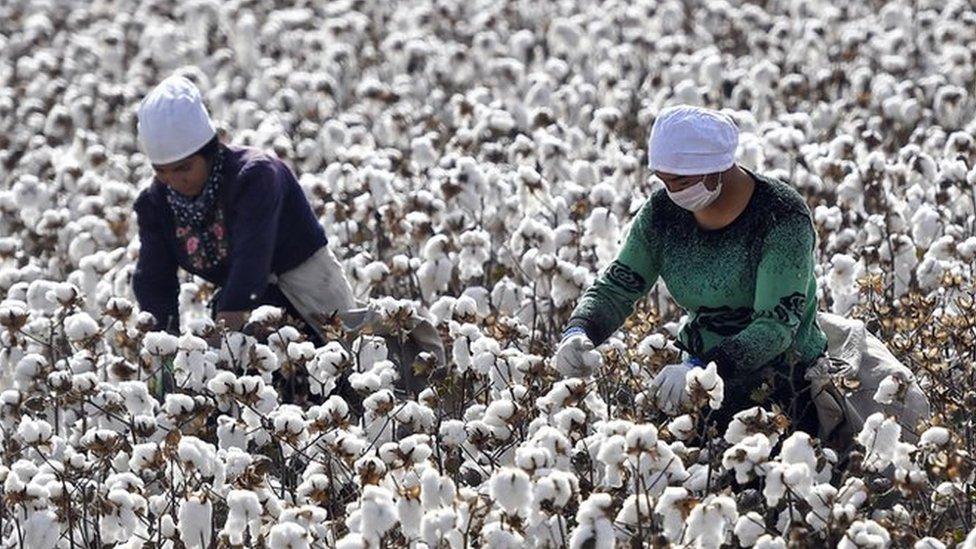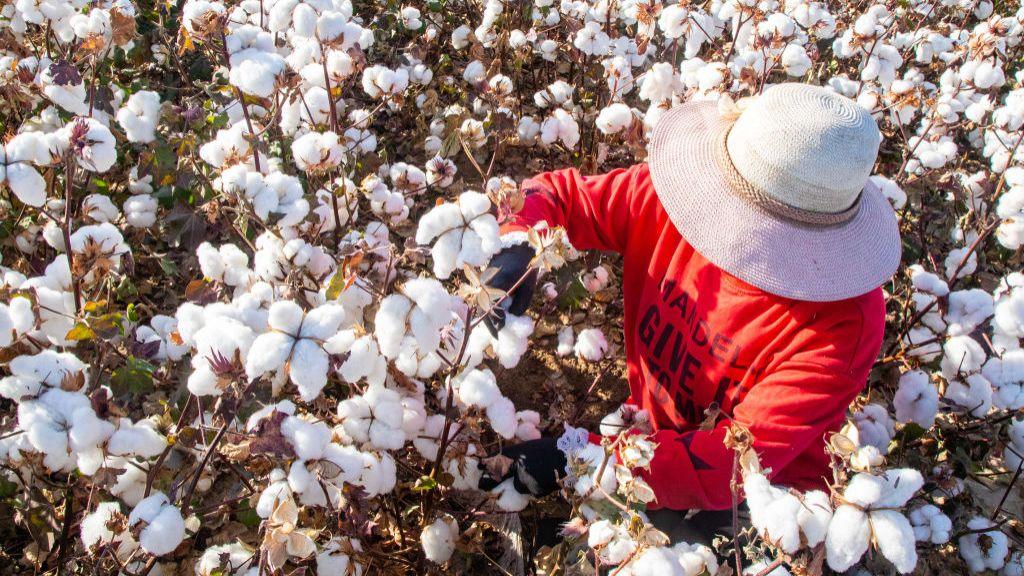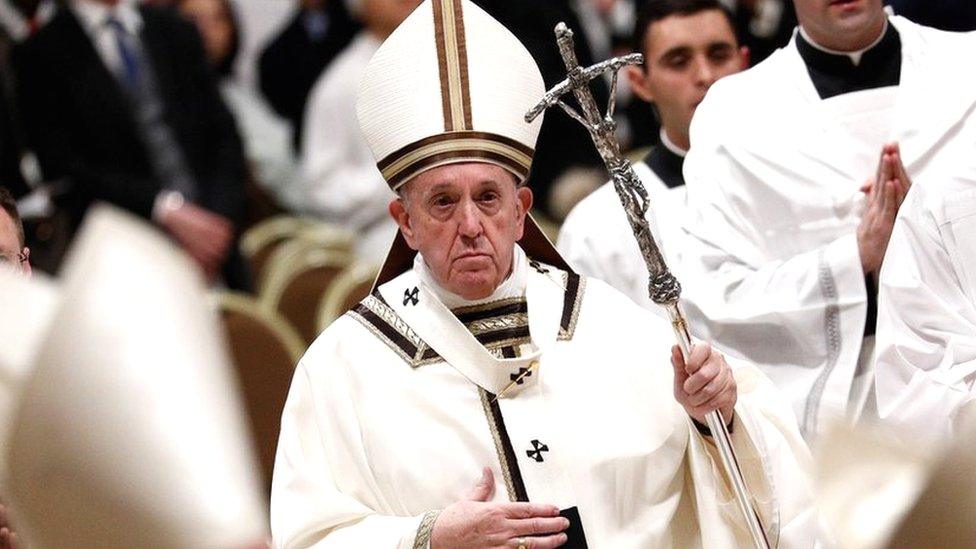M&S signs call to action over Uighur forced labour
- Published

Retailer Marks & Spencer has signed onto a call to action on human rights abuses in China's Xinjiang region.
In December, the BBC revealed new evidence that China is forcing hundreds of thousands of Uighurs and other minorities into hard, manual labour in the cotton fields of Xinjiang.
The report increased pressure on clothing retailers to remove Xinjiang cotton from their supply chains.
M&S uses around 40,000 tonnes of lint cotton each year from various sources.
The call to action comes from a coalition of civil society organisations and labour unions who want to end abuses against Uighur people.
The coalition said it is almost certain that any brand currently sourcing apparel, textiles, yarn or cotton from the region is profiting from human rights violations, including forced labour.
Marks & Spencer sources its cotton through businesses that are accredited with the Better Cotton Initiative (BCI), a not-for-profit organisation that focuses on sustainable production.
In March last year, BCI suspended its activities in Xinjiang, and as a result, there is no new licensed BCI cotton coming from the region.
Nevertheless, M&S said it was important to sign on to the call to action to encourage other companies to examine their supply chain.
"When it comes to sustainable and ethical clothing, we can only achieve real change at scale by working with others," said Richard Price, the managing director of M&S Clothing & Home.
Anti-Slavery International welcomed the move and encouraged other retailers to follow suit.
"The Call to Action sets out a clear path of action for brands to follow in line with the UN Guiding Principles on Business and Human Rights and we call upon other major brands to follow suit with M&S and commit to the Call to Action urgently," the organisation's chief executive Jasmine O'Connor said in a statement.
Further concerns
Xinjiang province accounts for roughly 20% of the world's cotton production.
Cotton production isn't the only human rights issue that has been documented in Xinjiang province.
Alongside a large network of detention camps, in which more than a million are thought to have been detained, allegations that minority groups are being coerced into working in textile factories have already been well documented.
The Chinese government has long denied the claims, insisting that the camps are "vocational training schools" and the factories are part of a massive, and voluntary, "poverty alleviation" scheme.
Related topics
- Published16 December 2020

- Published18 December 2020

- Published25 November 2020
